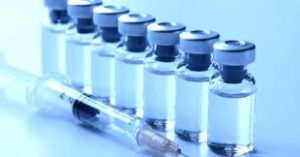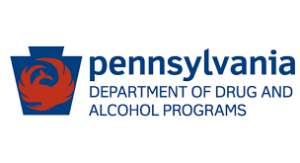PA Health Policy Update for the Week of December 13-17
The following is an update of selected state health policy developments in Pennsylvania for the week of December 13-17, 2021. (Some of the language used below is taken directly from state documents.)
Governor Wolf
The Wolf Administration requested support from the Federal Emergency Management Agency (FEMA) for Pennsylvania’s health care system in its continued battle against COVID-19. In particular, it has asked for staffing support for clinical and non-clinical professionals and continued pandemic response support. Learn more from this Wolf administration news release.
 General Assembly
General Assembly
- The Senate unanimously passed House Bill 1260, which expands eligibility for the PACENET prescription program from $27,500 to $33,500 for single individuals and from $35,500 to $41,500 for married couples. The bill has been sent to the governor.
- The House Health Committee held an informational hearing on Monday to discuss the various COVID-19 treatment options available. House Bill 1741, which provides for prescribing and dispensing to treat COVID-19 off-label drugs approved by the FDA for other purposes, received a considerable amount of attention during the hearing. Chairman Kathy Rapp indicated the committee may move the bill in early 2022. You can view a recording of the hearing here.
- The Senate Health & Human Services Committee convened on Tuesday and favorably reported the following bills:
-
- Senate Bill 200, which expands early intervention services for infants and mothers;
- Senate Bill 358, which categorizes maternal deaths and severe maternal morbidity complications as reportable events within the Department of Health and requires the Maternal Mortality Review Committee to submit a report including each reportable event to the Department of Health;
- Senate Bill 522, which requires all pregnant women and children in Pennsylvania to receive blood tests to detect lead poisoning;
- Senate Bill 848, which creates a chief nursing officer position in the Department of Health;
- Senate Bill 967, which establishes the Women, Infants, and Children State Advisory Board;
- Senate Bill 970, which implements certain measures to verify that child protective services or law enforcement are notified of children age 13 or younger who receive treatment for sexually transmitted diseases, pregnancy, abortions, or contraception; and,
- House Bill 118, which establishes requirements for the final disposition of fetal remains.
You can view the committee’s agenda and a video recording here.
- The House Human Services Committee held an informational hearing on House Bill 1644 on Thursday. The bill directs the Department of Human Services to develop a state-wide process to place patients enrolled in Medicaid and who have behavioral health or other long-term-care needs in appropriate care settings in a timely manner. The Human Services Committee also held an informational hearing on community participation supports during COVID-19 pandemic. You can view a recording of the hearing here.
- The state House and Senate appropriations committees released their FY 2023 budget hearing schedules. The schedules can be viewed here.
 Department of Human Services
Department of Human Services
- The Department of Human Services (DHS) has updated its schedule for Remittance Advices, adding January dates and pay dates that go into early February. Find it here.
- DHS has published a notice in the Pennsylvania Bulletin announcing its intention to allocate funds in FY 2021-2022 for several classes of Medicaid inpatient disproportionate share hospital (Medicaid DSH) payments and supplemental payments to Medical Assistance-enrolled, qualifying inpatient acute-care general hospitals. The department does not intend to otherwise change the qualifying criteria or payment methodology for these payments. The allocations include:
- $1.057 million in total funds for DSH payments to qualifying acute-care general hospitals that have a low commercial-payer ratio, a negative trend in their net patient revenue, and are located in an area of the state with a disproportionate need for Medicaid services
- $1.585 million for DSH payments to qualifying acute-care general hospitals to promote access to acute-care services for Medicaid-eligible persons in less urban areas
- $18.293 million for DSH payments to Medicaid-enrolled acute-care general hospitals that qualify as a trauma center
- $111.585 million for DSH payments to qualifying Medicaid-enrolled acute-care hospitals that promote access to comprehensive inpatient services for Medicaid-eligible persons by providing an adequate supply of health care professionals who have been trained in high-volume Medicaid-enrolled hospital settings
- $9.377 million for DSH payments to qualifying acute-care general hospital burn centers
- $14.119 million for DSH payments to qualifying acute-care general hospitals providing obstetrical and neonatal services
- $0.500 million for DSH payments to qualifying teaching hospitals that provide psychiatric services to Medicaid beneficiaries
- $34.356 million for DSH payments to critical access and qualifying rural hospitals
- $0.695 million for DSH payments to qualifying acute-care general hospitals that provide surgical services to patients with cleft palate and craniofacial abnormalities
- $0.737 million for DSH payments made to qualifying Medicaid-enrolled acute-care general hospitals that provide a high volume of inpatient services to Medicaid-eligible and low-income populations
- $4.333 million for DSH payments to qualifying acute-care general hospitals that qualify as academic medical centers
- $23.946 million for DSH payments to qualifying acute-care general hospitals to provide additional support for the operation of academic medical programs through the medical education of health care professionals
- $7.397 million for DSH payments to qualifying acute-care general hospitals that participate in an academic medical program
- $5.290 million for supplemental payments to qualifying acute-care general hospitals that provide medical and surgical ocular services to Medicaid beneficiaries
- $0.900 million for supplemental payments to qualifying acute-care general hospitals that provide a substantial portion of their inpatient services to Medicaid beneficiaries
Learn more from this Pennsylvania Bulletin notice.
- DHS has issued a Medical Assistance Bulletin to update handbook pages that address the requirements for prior authorization and the type of information needed to evaluate the medical necessity of prescriptions for anticonvulsants submitted for prior authorization. Find the bulletin here.
- DHS has issued a Medical Assistance Bulletin to update handbook pages that address the requirements for prior authorization and the type of information needed to evaluate the medical necessity of prescriptions for sedative hypnotics submitted for prior authorization. Find the bulletin here.
 Department of Health
Department of Health
- Department of Health (DOH) acting secretary Alison Beam will leave that job at the end of the year. She will be replaced by department deputy secretary Keara Klinepeter. Learn more from this Wolf administration news release.
- DOH announced that the state is opening free outdoor drive-up COVID-19 testing sites in Berks, Blair, Centre, Clinton, Jefferson, Luzerne and McKean counties. For locations and hours, see this department news release (and this separate notice for the site in Blair County).
- DOH has introduced a new “post-vaccination data” web page on which it will provide data on so-called breakthrough cases of COVID-19: cases, hospitalizations, and deaths. The web page reports that from January 1 through December 6, 2021, 85 percent of reported COVID-19 cases in Pennsylvania were in unvaccinated or not fully vaccinated people; 87 percent of reported hospitalizations with COVID-19 as the primary diagnosis/cause of admission were in unvaccinated or not fully vaccinated people; and 86 percent of COVID-19-related deaths were in unvaccinated or not fully vaccinated people. For additional information and a more detailed breakdown of these and other numbers, see the department’s new post-vaccination data web page.
- DOH has posted a notice on its message board about the transition from the Regional Congregate Care Teams to a new program that will support response operations at long-term-care facilities that experience COVID-19 outbreaks. Find that message here.
- The Independent Regulatory Review Commission (IRRC) has issued its comments on DOH’s proposed amendments of regulations governing long-term-care facilities. In addition to specific comments, the IRRC stated its agreement with many others in the regulated community that have urged DOH to reevaluate its approach of promulgating several packages of proposed regulations and instead consider submitting a comprehensive regulatory update regarding long-term care. Find the IRRC comments in this Pennsylvania Bulletin notice.
- DOH has issued its monthly report detailing its nursing home inspection and sanction activities. Learn more from this department news release and the department’s November report.
COVID-19: By the Numbers
- Daily COVID-19 case counts remain at their highest levels since the beginning of the pandemic. To date, more than 1.8 million Pennsylvanians have contracted COVID-19.
- The number of new COVID-19-related deaths remains high.
- All 67 Pennsylvania counties continue to experience a high rate of COVID-19 transmission.
- The number of Pennsylvanians hospitalized because of COVID-19 has risen 18 percent since December 1; the number in hospital ICUs because of COVID-19 has risen 13 percent; and the number on ventilators because of the virus has risen 16 percent since the start of the month.
- This situation is reflected in the high rate of occupancy in the state’s hospitals. There currently are only 484 unoccupied adult ICU beds – 13.7 percent of the total of such beds in the state; 2106 unoccupied medical/surgical beds – 10.5 percent of such beds in the state; 34 pediatric ICU beds (9.0 percent); 191 pediatric beds (16.8 percent); and 938 airborne isolation beds (29.6).
- Media reports confirm the challenges some communities and hospitals are facing, including this story in the Philadelphia Inquirer; a situation that the director of the 911 call center in Westmoreland County calls “desperate;” and reported capacity and hospital discharge problems in western and rural Pennsylvania.
- DOH reports that 6.8 million Pennsylvanians, excluding those in Philadelphia, are now fully vaccinated; it appears likely, although not certain, that this figure reflects the original concept of “fully vaccinated” and not whether such individuals have received boosters. Philadelphia’s Department of Public Health reports slightly more than one million people fully vaccinated and that 186,000 boosters have been administered to city residents since August 13.
 Pennsylvania Health Care Cost Containment Council (PHC4)
Pennsylvania Health Care Cost Containment Council (PHC4)
PHC4 has published Hospital Performance Report – 2020 Data, which presents volume and outcome information about a variety of medical conditions and surgical procedures performed by the state’s general acute-care hospitals. Learn more from the following resources:
- a PHC4 summary of the report
- the agency’s presentation of key findings
- links to specific types of medical conditions and procedures
- data on Medicare payments for specific treatments and procedures
 General Assembly
General Assembly COVID-19: By the Numbers
COVID-19: By the Numbers Department of Drug and Alcohol Programs
Department of Drug and Alcohol Programs State Revenue Update
State Revenue Update  Department of Drug and Alcohol Programs
Department of Drug and Alcohol Programs Governor Wolf
Governor Wolf General Assembly
General Assembly The Department of Human Services has issued updated requirements on the information needed to evaluate prior authorization requests for certain medications, based on actions taken by its Pharmacy and Therapeutics Committee during its September 14 meeting:
The Department of Human Services has issued updated requirements on the information needed to evaluate prior authorization requests for certain medications, based on actions taken by its Pharmacy and Therapeutics Committee during its September 14 meeting: Stakeholder Events
Stakeholder Events Among the subjects addressed in the group’s report 2021 State of Children’s Health Care in Pennsylvania: Health Insurance During the COVID-19 Pandemic are the increase in the number of insured children in the state as a result of the current public health emergency; the impact of the pandemic on children receiving their childhood immunizations; the major role Medicaid and the Children’s Health Insurance Program (CHIP) play in insuring children in the state; the implications of the end of the declared public health emergency; and more.
Among the subjects addressed in the group’s report 2021 State of Children’s Health Care in Pennsylvania: Health Insurance During the COVID-19 Pandemic are the increase in the number of insured children in the state as a result of the current public health emergency; the impact of the pandemic on children receiving their childhood immunizations; the major role Medicaid and the Children’s Health Insurance Program (CHIP) play in insuring children in the state; the implications of the end of the declared public health emergency; and more. COVID-19: By the Numbers
COVID-19: By the Numbers